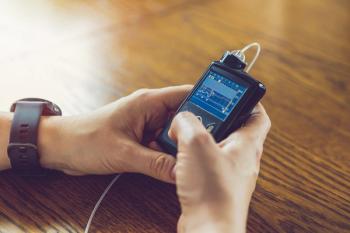
Inflation Reduction Act to Allow "Smoothing" of Medicare Part D Out of Pocket Costs

Medicare price negotiation, insulin out-of-pocket caps, and Medicare Part D out-of-pocket maximums—those are health care provisions of the Inflation Reduction Act (IRA) that people in health care circles, and beyond, have been talking about
But soon “smoothing” may become part of the IRA healthcare vernacular.
“You would think you would hear more about this,” said Charles Collins, MS, MBA, principal and president of Healthcare Stakeholder Solutions LLC, of Medford, New Jersey.
Collins was a member of a panel on the IRA and its impact on patient financial assistance today the Asembia’s 2023 Specialty Pharmacy Summit, held April 30 to May 4 in Las Vegas, Nevada.
Smoothing is shorthand for the provision of the IRA that, starting in 2025, requires Part D plans to offer the option of allowing beneficiaries to spread out their out-of-pocket costs, which, starting in 2025 will be capped at $2000 per year. With smoothing, if beneficiary was on medication that would have $2000 in out-of-pocket costs for a full calendar year, that person could pay $167 a month ($2000 divided by 12) instead of owing $2000 the first month.
Collins said smoothing is an opt-in choice for beneficiaries. In a brief interview with Managed Healthcare Executive after the panel discussion, he said the smoothing provision of the IRA has some aspects that are “not really user friendly. It doesn’t protect the patient at a lot of levels.”
For one thing, because it is an opt-in choice, some beneficiaries may not take advantage of it. In addition, Collins said a missed or late payment means the beneficiary will automatically be kicked out of the smoothing program and that the Part D plan can demand the balance of the out-of-pocket maximum.
Speaking more broadly about the IRA and its consequences for beneficiaries, panelist Alan Klein, MBA, chief development officer for the HealthWell Foundation in Germantown, Maryland, said the $2000 out-of-pocket maximum “is certainly helpful, but there is going to be a lot of people still who can’t afford that $2000.”
Klein said his foundation, which has “when health insurance is not enough” as a tagline, assists 180,000 patients a year with copays, premiums and other healthcare-related expenses, that the average income of the recipients is 250% of the federal poverty level and that the average grant is close to $3000.
Another panelist, Melissa Paige, vice president, National Association of Medication Access and Patient Advocacy, made a plea for resources and education about the IRA for healthcare workers so they can share the information with patients.
“They are really dealing with a million fires right now, with accumulators, maximizers and everything else that is getting thrown at them. They really don’t worry till something is in place and what does that mean.”
James E. Smith Jr., PharmD, apharmacy manager at Amber Specialty Pharmacy, headquartered in in Omaha, Nebraska, and Krista Zodet, MSW, president and CEO of the HealthWell Foundation, were also on the panel.
Newsletter
Pharmacy practice is always changing. Stay ahead of the curve with the Drug Topics newsletter and get the latest drug information, industry trends, and patient care tips.























